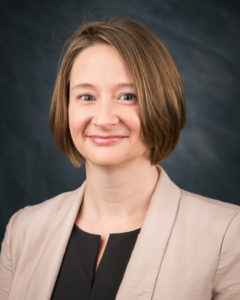Jocelyn Bradshaw
- Senior Vice President, Strategic Sourcing, HealthTrust
- HealthTrust consists of 1,498 members (acute care hospitals); over 20k non-acute facilities; annual contract volume of $29 billion.
Jocelyn Bradshaw joined HealthTrust in 2013 following years of experience in supply chain contracting. After nine years at Broadlane (later acquired by the former MedAssets) in a number of roles, including vice president of capital equipment services, she headed supply chain at home health company CCS Medical.
Today, she leads HealthTrust’s core GPO sourcing teams, including nursing, surgery, lab, radiology and pharmacy, as well as its global sourcing team in Shanghai. In addition, she oversees the organization’s clinical advisory boards and supply chain board; directs its supplier diversity program and environmental sustainability efforts; and directs its sourcing operations team responsible for contract loading and communications.
The Journal of Healthcare Contracting: What has been the most challenging and rewarding project you have been involved in recently?
Jocelyn Bradshaw: Tenet Healthcare, Barnabas Health and St. Luke’s Boise all joined HealthTrust within the past year. Working with these new members to successfully on-board them to the HealthTrust contract portfolio has been a privilege. In addition, they collectively represent about $4 billion of additional spend to the HealthTrust contract portfolio. Given the substantial increase in spend to the portfolio, and their alignment to the HealthTrust committed GPO model, we received the directive from our Board to refresh our contract portfolio. We began this process in August of 2015 and are pleased with the success we have had thus far in collaboration with our supplier partners.
JHC: Please describe a project you look forward to implementing in the next year or two.
Bradshaw: After an extensive assessment this past year of a large member’s medical capital equipment process, we have identified some exciting opportunities, to improve operational efficiencies and expand capital capacity across their organization. Over the next 12 months, we will put into action a comprehensive capital process that spans from planning/forecasting to acquisition, management and disposition. Key initiatives include enhancing the capital expenditure request process, establishing and monitoring equipment standard configurations and service coverage standards, and confirming that purchases align with forecasted demand and contracting portfolio.
JHC: What are the most important qualities you look for in a supplier partner?
Bradshaw: We look for a supplier that truly understands hospital operations and can meet clinical quality demands in a cost effective way. Those with real evidence that supports a better patient outcome or a meaningful impact on operational performance are highly valued. In addition, the best supplier partners don’t lose sight of the fundamentals:
- Reliability
- Strong customer service –and the ability to exceed customer expectations
- Transparency
- Integrity and the ability to keep commitments
- Excellent execution/implementation
JHC: What is the greatest change we can expect to see in healthcare contracting in the next five years?
Bradshaw: Bundled payments will evolve [and influence] how healthcare providers and GPOs contract. The importance of negotiating contracts across the entire care continuum, for all classes of trade, will be critical. Also, because of bundled payments, the industry is moving toward a true marriage between science/evidence and contracting strategies. And, the [evolving] formation and growth of regional purchasing coalitions/sub-aggregation groups will continue to validate the importance of a compliance-driven contracting model.

